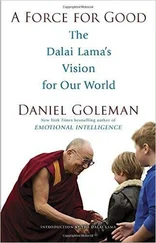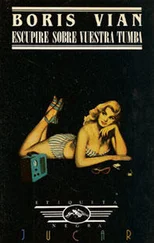For Fedukin it was a question of honor, the greatest challenge: to break down Novsky. In his long career as an interrogator, he had always succeeded: in breaking their backs, he had also broken the wills of even the most tenacious prisoners (which was why they always gave him the toughest material). Novsky, however, stood before him like a scientific puzzle, an unknown organism that behaved quite unpredictably and atypically in relation to Fedukin's entire experience. (There is no doubt that in Fedukin’s laudable theorizing there was no bookishness, given his less than modest education, so that any connection with teleological reasoning would have escaped him. He must have felt like the originator of a doctrine, which he formulated very simply, to make it comprehensible to any man: “Even a stone would talk if you broke its teeth"). [8] The journal Worker published several fragments from Fedukin's memoirs, called The Second Front (August and November 1964). Thus for, this autobiographical "piece" covers only the earliest period of Fedukin's “background activity,'' but judging by this material, in which the vividness of his actual practice is replaced by overly schematic reflections, I am afraid that even the complete edition of his memoirs would not reveal the secret of his genius: it seems to me that, except in actual practice, Fedukin was a theoretical zero. He extracted confessions according to the most profound principles of inner psychology without even being aware that psychology existed; he dealt with human souls and their secrets without knowing that he did. But even now, what really attracts us in Fedukin's remembrances are his descriptions of nature; the austere beauty of the Siberian landscape, the sunrise over the frozen tundra, diluvial rains and treacherous waters cutting through the taiga, the silence of distant lakes, their steel color-ail of which testifies to his undeniable literary talent.
On the night of January 28–29, they led from his cell a man who still bore the name Novsky, though he was now only the empty shell of a being, a heap of decayed and ever- tortured flesh. In Novsky’s dull gaze one could read, as the only sign of soul and life, the decision to endure, to write the last page of his biography according to his own will and fully conscious, as one writes a last testament. He formulated his thought like this: '"I've reached my mature years-why spoil my biography?" He therefore seemed to have realized that even this last trial was not only the final page of the autobiography which he had been consciously writing with his blood and brain for some forty years, but also that this was indeed the sum of his living, the conclusion on which everything hinged, and all the rest was (and had been) only a minor treatise, the arithmetical calculation whose value was insignificant in relation to the final formula that gave meaning to these subordinate operations.
Novsky was led out of the cell by two guards, who supported him on each side, down some half-dark stairs that wound vertiginously into the depths of the triple cellar of the prison. They brought him to a room illuminated by a bare light bulb that hung from the ceiling. The guards released him, and Novsky staggered. He heard the iron door close behind him, but at first he noticed only the light, which cut painfully into his consciousness. The door opened again, and the same two guards, preceded by Fedukin, brought in a young man and left him about one meter from Novsky. It flashed through Novsky's mind that this was probably another false confrontation, one of many, so he stubbornly clenched his toothless jaws and with a painful effort opened his swollen eyelids to get a look at the young man. He expected to see again a corpse with dull eyes (like Reinhold), but with a shiver very much like foreboding he saw before him young, living eyes full of fear that was human, altogether human. The young man was naked to the waist; with astonishment and the dread of the unknown, Novsky realized that his muscular body was entirely devoid of blue marks, without a single bruise, with healthy dark skin untouched yet by putrefaction. But what astonished and frightened him the most was that gaze, whose meaning he could not penetrate, that unknown game into which he was being drawn, at the point when he thought that everything was already over in the best possible sense. Could he have fathomed what the ingenious and infernal intuition of Fedukin was preparing for him? Fedukin was standing behind him, invisible yet present, holding his breath, letting Novsky discover it for himself and be horrified by it and then, when the denial born of terror whispered to him that that was impossible, ready to hit him suddenly with the truth, the truth more awful than the merciful bullet he could use to blow his brains out.
At the same moment that the denial born of terror whispered to Novsky that that was impossible, he heard Fedukin's voice: "If Novsky doesn't confess, we'll kill you!” The young man's face grew distorted with fear, and he fell on his knees in front of Novsky. Novsky shut his eyes, but because of the handcuffs couldn't cover his ears so as not to hear the young man's pleadings, which suddenly, as if by some miracle, began to shake the hard rock of his resolution, to break down his will.The young man was imploring him with a trembling, broken voice to confess for the sake of his life, Novsky clearly heard the guards cock their guns. Behind his tightly shut lids there arose in him, simultaneously with the reawakening of pain and the premonition of failure, hatred; he had enough time to realize that Fedukin had seen through him and had decided to devastate him where he felt the strongest: in his egocentricity. For if Novsky had discovered the saving but dangerous idea of the futility of one’s own being-in-rime and suffering, this was still a moral choice; Fedukin's intuitive genius had sensed that this choice does not exclude morality-quite the contrary. The guns must have had silencers, since Novsky hardly heard the shots. "When he opened his eyes, the young man was lying in front of him in a pool of blood, his brains spilled out.
Fedukin didn’t waste words. He knew that Novsky had understood; he signaled to the guards to take Novsky away, and they lifted him up by the arms. Fedukin gave him twenty-four hours to think it over in his well-guarded cell, where again he would be able, "under the death shroud of stone", [9] The expression was used by Leo Mikulin to immortalize his own biography, sometime in 1936. This metaphor is less arbitrary than it seems at first glance; Mikulin died of a heart attack in solitary confinement in Suzdal Prison. (Some sources maintain that he was strangled.)
to ascertain his moral position, which was whispering demoniacally into his ear that his biography was final and well rounded, without flaws, as perfect as a sculpture. The next night, that of January 30, the scene was repeated: the guards led Novsky down the vertiginous spiral stairs into the deep cellars of the prison. Novsky realized with horror that this repetition was not accidental, but part of an infernal plan: each day of his life would be paid for with the life of another man; the perfection of his biography would be destroyed, his life work (his life) deformed by these final pages.
Fedukin’s direction was perfect: the mise en scène of the previous night was the same, with the same Fedukin, the same cellar, the same light bulb, the same Novsky-the elements entirely sufficient to give the repeated action the appearance of something identical and inevitable, as the alteration of day and night is inevitable. Only this half-naked young man trembling in front of him was slightly different (only as one day spent in the same cell differs from another), Fedukin probably sensed, by the silence that fell for a moment, how much harder today’s trial was for Novsky than yesterday's; today, while Novsky stood eye-to-eye with the unknown young man, there remained not even a shred of hope for his morality, no taking of shelter in some thought that could come to his rescue, a thought that could whisper to him, despite certain clear outside indications, that this was impossible: last night's quick and efficient demonstration had shown him the futility of this kind of thought, that such a thought was deadly, (And tomorrow, and the day after tomorrow, and in three or ten days more, this thought would become even more absurd, even more impossible.)
Читать дальше









